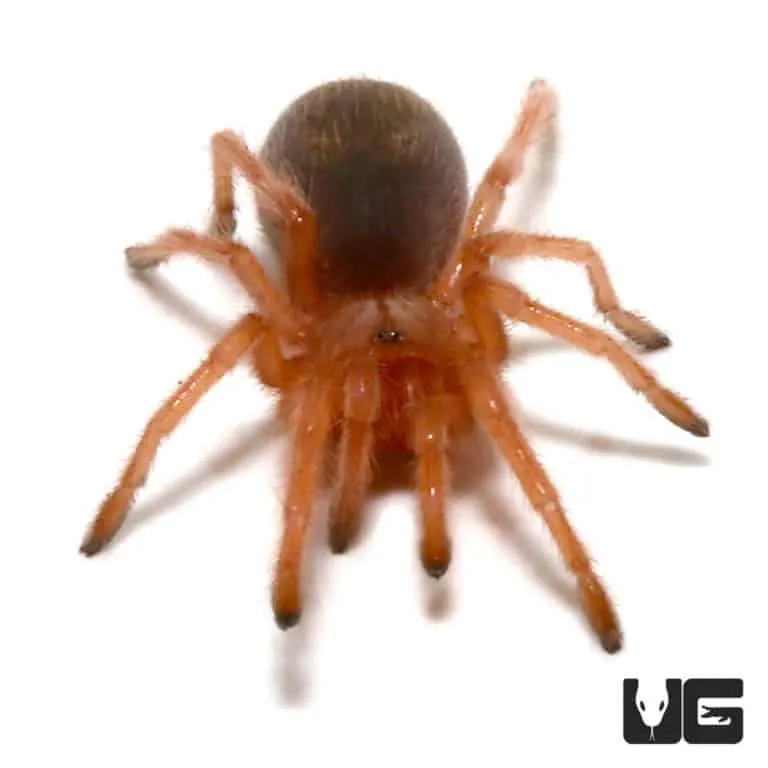Rose Hair Tarantula at Petco The Basics
The Rose Hair Tarantula, a beloved pet among arachnid enthusiasts, is often a captivating sight at Petco. Known for their relatively docile temperament and manageable care requirements, these tarantulas make a rewarding pet for both beginners and experienced keepers. This guide will delve into the top 5 facts about Rose Hair Tarantulas, particularly focusing on what you need to know if you’re considering acquiring one from Petco. From their basic characteristics to their specific needs, this article aims to provide a comprehensive overview to ensure you can provide the best possible care for your new eight-legged friend. Preparing for a new pet is exciting, so understanding its needs will help you provide the best possible care, so let’s dive right into the basics.
What is a Rose Hair Tarantula?
The Rose Hair Tarantula, scientifically known as Grammostola rosea, is a species of tarantula native to the dry scrublands of Chile, Bolivia, and Argentina. They are named for the pinkish hairs that cover their bodies, especially visible in certain lighting. These tarantulas are popular pets due to their calm demeanor, making them less prone to biting, and relatively straightforward care needs. Their longevity is another appealing factor, as they can live for over 20 years, offering a long-term companionship opportunity. Their size is also manageable, with females typically reaching a leg span of up to 5-6 inches, making them suitable for keeping in standard-sized terrariums that are easily available at stores like Petco.
Origin and Habitat
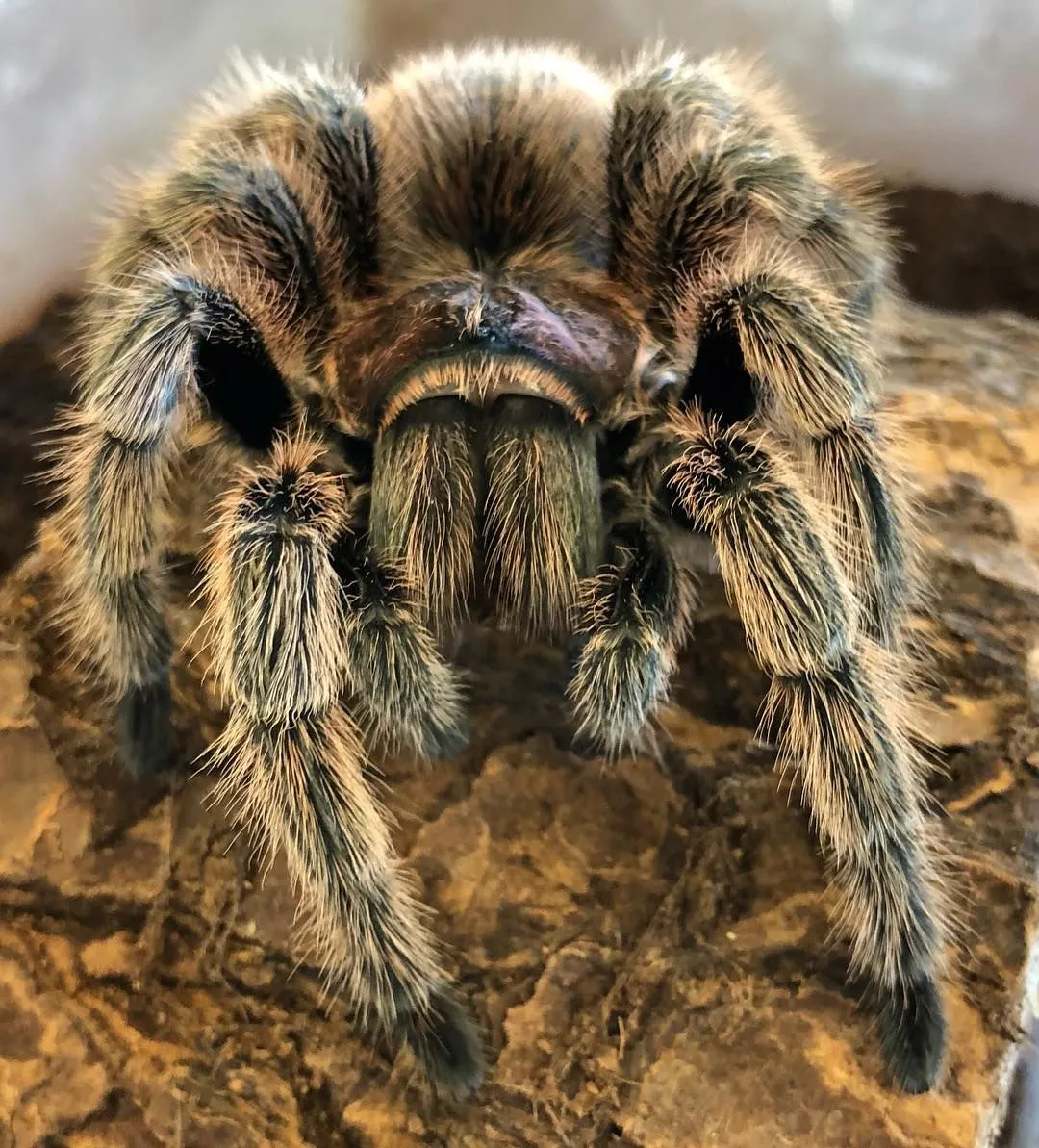
Rose Hair Tarantulas are found in the arid and semi-arid regions of South America, where they thrive in a terrestrial environment. Their natural habitat consists of burrows in the ground, or under rocks and logs, where they seek shelter from the harsh sun and predators. This information is crucial for replicating a suitable environment in captivity. The climate in their native lands is typically dry, with significant temperature fluctuations between day and night. When setting up a terrarium, it’s essential to mimic these conditions, ensuring the tarantula feels secure and comfortable, reducing stress and promoting healthy behavior. Understanding the origins of a Rose Hair Tarantula helps to better care for them.
Appearance and Characteristics
Rose Hair Tarantulas exhibit a distinctive appearance, with a dark body and reddish or pinkish hairs. Their coloring can vary slightly depending on the individual tarantula and its age. The females are generally larger than the males and have a longer lifespan. They possess eight eyes, arranged in two rows, and two chelicerae, which are used for biting and injecting venom. Despite their intimidating appearance, Rose Hair Tarantulas are not generally aggressive and are considered one of the most handleable tarantula species, although caution is still advised. Observe their size and coloration when you are shopping at Petco, they are easily distinguishable from other species.
Rose Hair Tarantula at Petco Fact 1 Temperament
One of the most attractive qualities of the Rose Hair Tarantula is its generally docile temperament. They are known to be relatively calm and less prone to biting or displaying defensive behaviors compared to other tarantula species. However, it is important to remember that each tarantula has its own personality, and individual behaviors can vary. This makes them a good option for beginner tarantula keepers. It’s crucial to always approach them calmly and avoid sudden movements, which can startle them. Proper handling techniques and understanding their body language are vital to ensure both your safety and the tarantula’s well-being.
Are Rose Hair Tarantulas Docile?
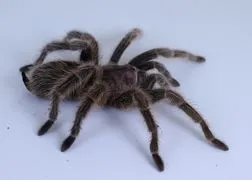
Yes, Rose Hair Tarantulas are widely regarded as docile tarantulas. They are less likely to bite unless they feel threatened. They prefer to retreat or flick urticating hairs (small, irritating hairs) as a defense mechanism. Their calm nature makes them a popular choice for those new to tarantula keeping. When handled with care, they are less likely to become defensive. It’s also essential to remember that while they are generally docile, individual personalities can vary. When you see one at Petco, it’s also important to assess how the tarantula is behaving.
Handling Precautions
Handling a Rose Hair Tarantula should be done with extreme caution. Always handle them close to the ground to minimize the risk of injury if they fall. Avoid any quick or jerky movements that could startle them. Wash your hands before and after handling to remove any potential contaminants. Before handling, observe the tarantula for signs of stress, such as a defensive posture or raised front legs. If the tarantula appears stressed, it is best to leave it alone. Handle them gently and support their body to prevent falls. Understanding their demeanor and approach is essential for successful handling. Do not handle them in a crowded room or near other pets. Always keep a close eye on your pet.
Rose Hair Tarantula at Petco Fact 2 Habitat Requirements
Creating a suitable habitat is key to the well-being of your Rose Hair Tarantula. Petco offers a variety of terrariums and supplies to help you set up the perfect environment. The habitat should mimic their natural environment and provide security, proper temperature, and humidity. Choosing the right enclosure size, substrate, decor, and maintaining the correct climate is crucial for keeping your pet happy and healthy. You can find all the necessary components at Petco, including terrariums, substrates, and decorations. The goal is to provide a space that allows the tarantula to feel safe, secure, and comfortable. This is vital for your pet’s longevity.
Terrarium Setup
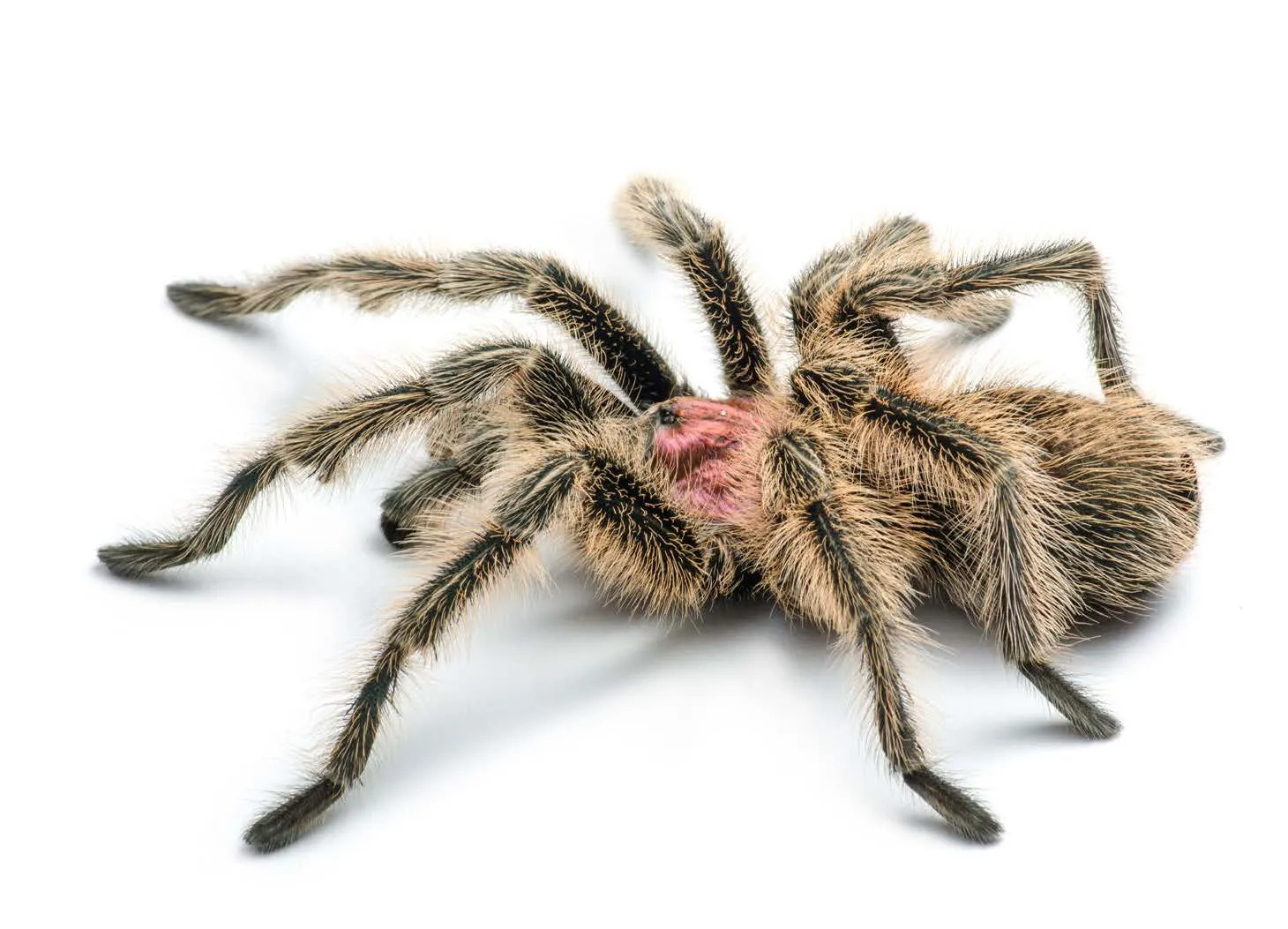
A suitable terrarium for an adult Rose Hair Tarantula should be at least 10 gallons, though larger is always better. The enclosure should have a secure lid to prevent escapes. Ensure proper ventilation to avoid excessive humidity. At Petco, you can find a variety of terrariums specifically designed for tarantulas. The height of the terrarium is important; the tarantula should have enough space to move around, but it does not need to be excessively tall, as these tarantulas are terrestrial. Make sure that the terrarium is easy to clean and maintain. Place the terrarium in a quiet location away from direct sunlight and drafts. Remember that the right setup helps the tarantula thrive.
Substrate and Decor
The substrate should be several inches deep to allow the tarantula to burrow. Suitable substrates include a mix of peat moss, coconut fiber, and vermiculite, all readily available at Petco. Avoid substrates with sharp edges that could injure the tarantula. Provide hiding places such as cork bark or artificial caves to help the tarantula feel secure. Decorate the enclosure with non-toxic plants or artificial foliage to mimic their natural habitat and add visual interest. Always avoid using any decorations that could be toxic or harmful to the tarantula. Regularly clean the enclosure and remove any waste. The substrate should always remain slightly damp.
Temperature and Humidity
Rose Hair Tarantulas thrive in a temperature range of 75–85°F (24–29°C). A heating pad placed on the side of the terrarium can help maintain the proper temperature, especially during colder months. Humidity levels should be maintained between 60-70%. You can monitor humidity with a hygrometer. To maintain humidity, lightly mist the enclosure every few days, but avoid oversaturating it. Proper ventilation is essential to prevent mold and mildew. Proper temperature and humidity are crucial for the tarantula’s health. Petco sells the equipment required to monitor the temperature and humidity levels in the habitat. Keep a close eye on these conditions.
Rose Hair Tarantula at Petco Fact 3 Feeding and Diet
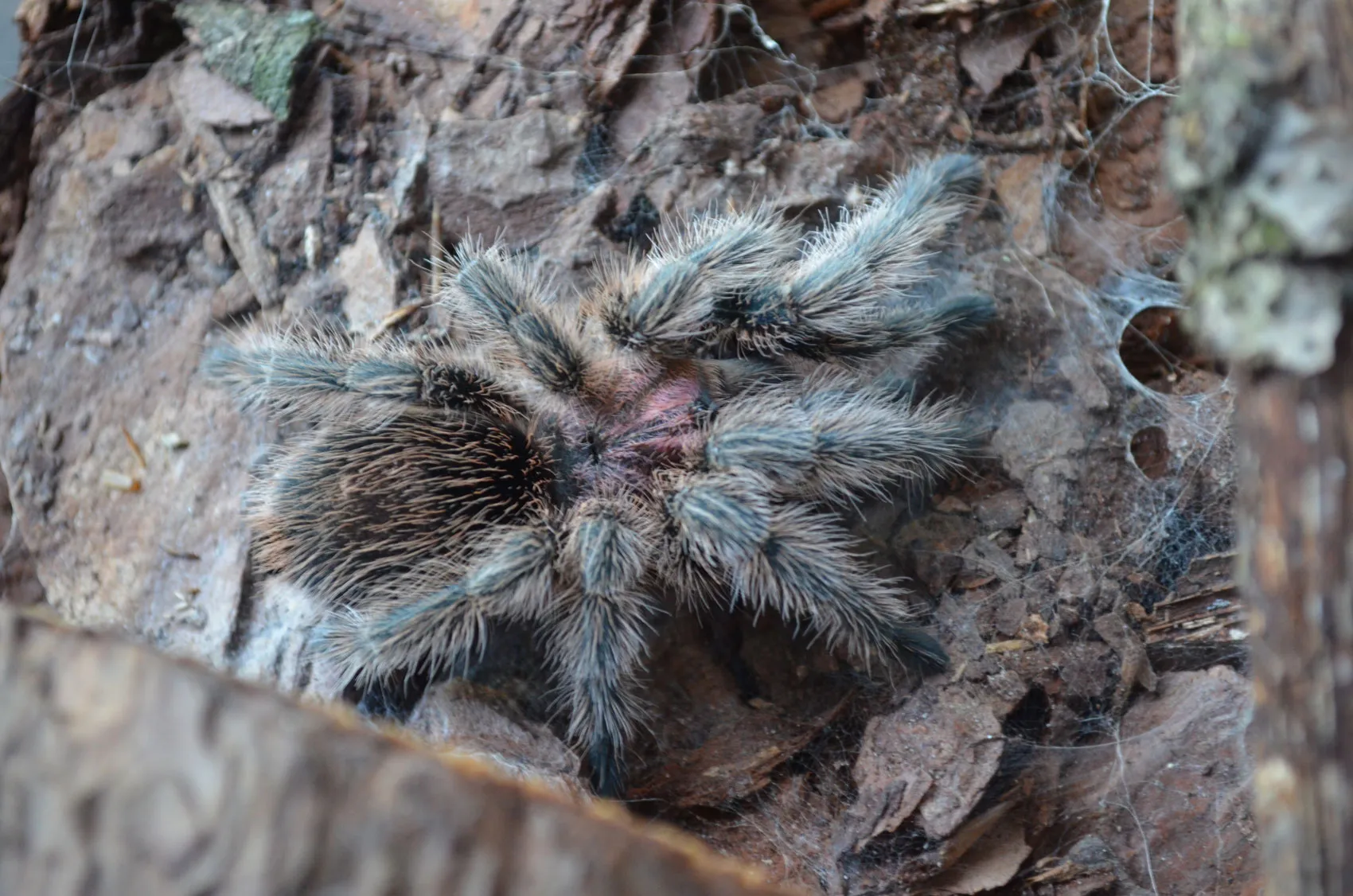
Feeding is a critical aspect of caring for a Rose Hair Tarantula. They are opportunistic predators and will eat a variety of insects. At Petco, you can find live feeders to provide your tarantula with the nutrition it needs. The type and frequency of feeding depend on the tarantula’s age and size. Ensure that the food is appropriate for the size of your tarantula and is free from pesticides. Feeding helps maintain the energy levels of your pet, and it’s a very engaging part of the experience of owning a Rose Hair Tarantula. Always provide fresh water and remove uneaten food to maintain a clean and healthy environment for your pet.
What to Feed
Rose Hair Tarantulas primarily eat insects. Crickets, mealworms, and roaches are common feeder insects. The size of the feeder should be appropriate for the size of your tarantula; the prey should generally be no larger than the tarantula’s abdomen. You can often find feeder insects at Petco. Dusting the insects with a calcium and vitamin supplement can also help ensure your tarantula gets all the necessary nutrients. Always make sure that the feeder insects are healthy and have been properly gut-loaded before feeding them to your tarantula. Remember to remove any uneaten food within 24 hours to maintain a clean environment.
Feeding Frequency
The feeding frequency depends on the age and size of the tarantula. Spiderlings should be fed 2-3 times a week. Juvenile tarantulas should be fed once or twice a week. Adult Rose Hair Tarantulas can be fed once a week or every other week. Adjust the feeding schedule based on the tarantula’s appetite and condition. If the tarantula is refusing food, it could be molting, or the conditions in the habitat may not be suitable. Always provide fresh, clean water in a shallow dish. Observe your pet to make sure it’s getting the necessary nutrition, as the amount will vary throughout its life.
Watering
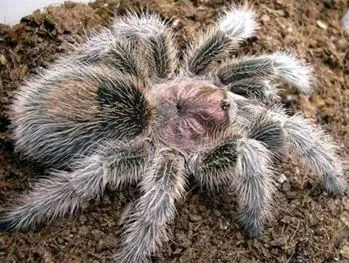
Provide fresh, clean water in a shallow dish at all times. This is crucial for hydration, especially in a dry habitat. The water dish should be shallow to prevent the tarantula from drowning. You can use cotton balls or sponges in the water dish to prevent the tarantula from drowning. Change the water regularly to keep it clean and prevent the growth of bacteria. When your Rose Hair Tarantula is at Petco, make sure that the water dish is always clean and filled. Water is essential for the survival of any living creature. The amount of water consumption can vary depending on the size and age of your pet.
Rose Hair Tarantula at Petco Fact 4 Lifespan and Growth
Understanding the lifespan and growth stages of a Rose Hair Tarantula is essential for responsible pet ownership. These tarantulas can live for a considerable amount of time, which is a significant commitment. Proper care and attention to their needs can influence their growth and overall health. Their molting cycle is a unique process that allows them to grow and shed parasites. Their lifecycle can be divided into different stages that require different care approaches. From choosing your pet at Petco to caring for it at home, a thorough understanding of their lifespan and growth will help you provide better care.
Growth Stages
Rose Hair Tarantulas grow through molting, where they shed their exoskeleton to allow for growth. Spiderlings will molt frequently, while adults molt less often, usually once a year or less. The molting process can take several hours or even days. During this time, it is very important not to disturb the tarantula. After molting, the tarantula’s exoskeleton will be soft, so it is best not to feed it for a week or two until the new exoskeleton hardens. Provide a suitable environment for your tarantula to molt successfully. Be patient during this delicate period, and avoid any disturbances. Observe and provide the necessary support for your pet.
Lifespan Expectations
The lifespan of a Rose Hair Tarantula varies. Females can live for up to 20 years or more, while males typically have a shorter lifespan of 5-10 years. The lifespan depends on factors such as genetics, care, and environment. Providing proper care, including a suitable habitat, diet, and temperature, can help extend their lifespan. When you get your Rose Hair Tarantula at Petco, understand that you are committing to providing many years of care. Regular health checks and a suitable habitat will contribute to a longer lifespan. Providing good care can contribute to its long life.
Rose Hair Tarantula at Petco Fact 5 Health and Common Issues
Like all pets, Rose Hair Tarantulas can be susceptible to certain health issues. By understanding common problems and recognizing the signs, you can ensure that your pet receives timely care. Proper hygiene, a balanced diet, and appropriate habitat conditions are crucial for preventing many health issues. This includes being aware of the molting process, and monitoring your pet for any signs of illness. Understanding these details and common issues will help you to provide the best care possible for your pet. If you are shopping for one at Petco, you can also discuss health concerns with the staff.
Molting
Molting is a natural process where the tarantula sheds its exoskeleton to grow. Before molting, the tarantula may stop eating, become lethargic, and may lie on its back. Avoid disturbing the tarantula during molting. Ensure proper humidity levels to aid in the molting process. After molting, the tarantula’s new exoskeleton will be soft; do not feed it for a week or two until it hardens. Molting is an important part of the life cycle. If you are getting a tarantula at Petco, the staff can offer more details on the molting cycle. By observing and understanding the behavior of your tarantula, you can ensure its well-being.
Parasites and Diseases
Rose Hair Tarantulas can occasionally suffer from parasites or diseases. Common issues include mites, fungal infections, and dehydration. Inspect the tarantula regularly for any unusual signs, such as lethargy, loss of appetite, or changes in appearance. If you suspect your tarantula is ill, consult a veterinarian experienced in exotic pets. Maintain proper hygiene by cleaning the enclosure regularly and providing a clean water source. Quarantine any new tarantulas to prevent the spread of diseases. Be sure to always inspect your tarantula for parasites to ensure their health. Proper care and maintenance will help minimize the risk of any potential diseases.
Conclusion
The Rose Hair Tarantula is a captivating pet, especially when purchased from Petco, due to their docile nature and manageable care requirements. By understanding the basics, including their temperament, habitat needs, diet, lifespan, and potential health issues, you can provide a thriving environment for your tarantula. Remember to always prioritize the tarantula’s well-being. With the right knowledge and care, your Rose Hair Tarantula can bring years of enjoyment and companionship. Consider these facts when you are picking up your pet at Petco, and enjoy your new pet.
